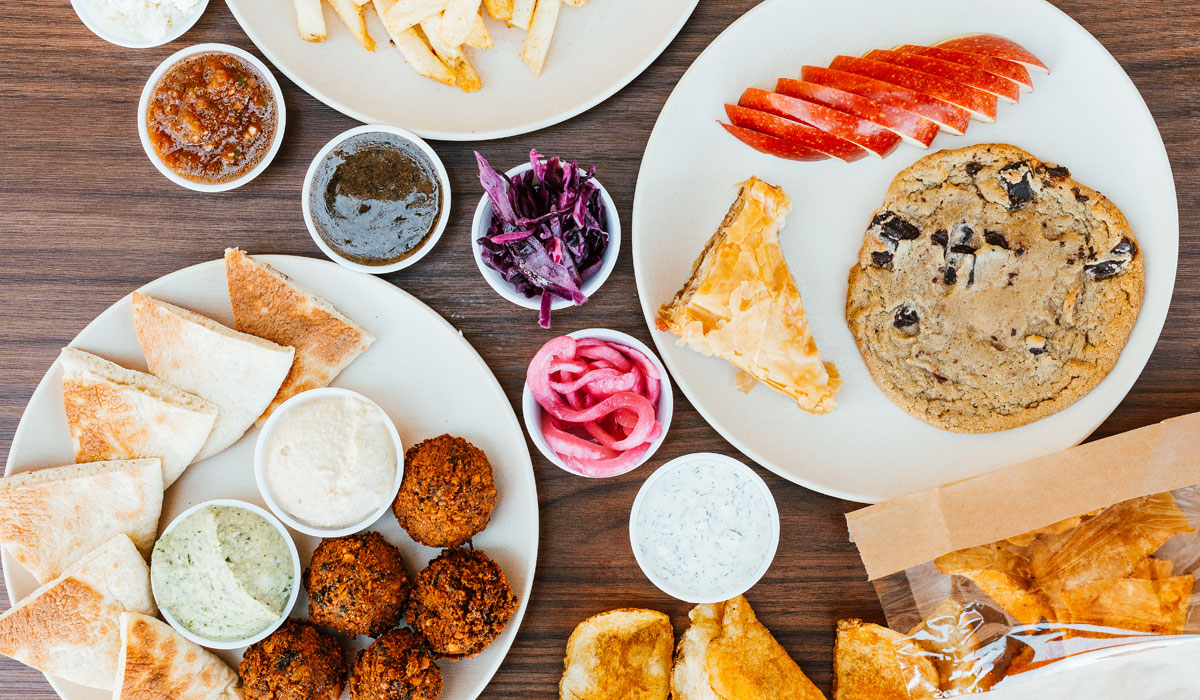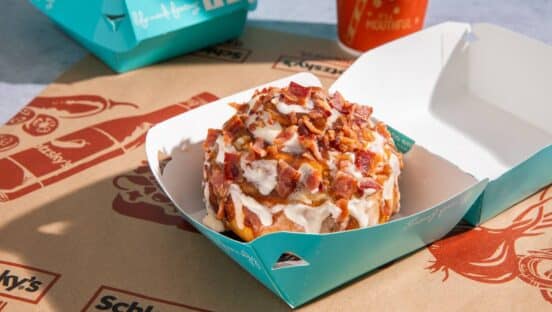The parent company of Saladworks announced Tuesday it has acquired Garbanzo Mediterranean Fresh and Frutta Bowls to form a three-brand portfolio under a new holding company, WOWorks.
Garbanzo Mediterranean Fresh declared bankruptcy in August, citing the overwhelming effects of COVID-19. At the time, it oversaw 25 units, 21 of which were franchises. The filing only covered the four corporate stores as Garbanzo entered Chapter 11 with $17.5 million in debt—$16.5 million secured.
“Today, we welcome both Garbanzo Mediterranean Fresh and Frutta Bowls to the WOWorks family,” Kelly Roddy, CEO of Saladworks, said in a statement. “Like Saladworks, we believe Garbanzo and Frutta Bowls are complementary brands—all sharing a core DNA based upon fresh, flavorful and healthy food along with a heart for hospitality served through convenient business channels, which appeals to our Millennial family and Gen Z guests. We are excited to leverage the appeal of these unique and differentiated brands—along with the added size, scale and shared resources—to benefit all stakeholders including our team members, guests, business partners and communities.
Roddy, a former Schlotzsky’s president who joined Saladworks in August 2019, will also serve as CEO of the group, which is fully owned by Centre Lane Partners, LLC.
Saladworks’ team will take over both brands’ infrastructure and operations “in its quest to drive explosive growth,” it said. Garbanzo CEO James Park will stay on as special adviser to Roddy.
“Garbanzo has a favorable path for growth post-pandemic and I’m looking forward to working alongside the new holding company WOWorks to ensure a smooth transition,” Park said in a statement. “Our brand and franchisees will benefit from the tremendous new resources this team can bring to continue the growth and prosperity of Garbanzo.”
According to its August bankruptcy filing, Garbanzo, as of December 24, had negative retained earnings of roughly $22.5 million and long-term liabilities of $15.6 million. It reported a loss of $2.2 million in 2019.
The fast casual’s financial distress boiled over in March when COVID-19 shut down dining rooms. Garbanzo was hit especially hard by a loss in catering business.
Overall, sales declined, on average, between 50 and 75 percent from March to mid-May. By August, they were down 20 percent but catering was still 90 percent below pre-pandemic levels. At certain units, catering mixed as much as 30 percent of the business before the crisis.
About 42 percent of Garbanzo franchises were located at colleges and universities as well. Garbanzo said in the filing franchise royalty income fell by more than 90 percent since the onset of COVID-19.
Park told the Denver Business Journal at the time Garbanzo would look into onboarding a new partner, and was still planning to open six new stores by 2021. COVID-19 derailed aggressive growth prospects leading into the year.
In June 2019, the chain said it planned to add 50 new locations to the development pipeline annually, focusing on the Rocky Mountain, Midwest, and Texas territories. Before that reveal, Garbanzo signed a five-store deal in Boston and a 25-plus agreement covering Indiana, Kentucky, and Southwest Ohio.
Saladworks said its WOWorks portfolio is “strategically positioned to turn industry headwinds into tailwinds based upon their intersection of four key macro growth trends.”
They are:
Demographics: Millennials and GenZ comprising over 60 percent of the U.S. population.
Psychographics: A shared mindset valuing personalization, customization, self-expression and connection.
Lifestyle: Viewing “Food as fuel” as guests seek out healthy, nutritious and satisfying dining options and experiences to support their healthy, active lifestyle.
Convenience: Desiring convenience as provided by traditional and non-traditional segments of the foodservice industry, which include but are not limited to dine-in, carryout, online ordering, curbside pick-up, delivery, ghost kitchens, food trucks, virtual brands and stores within grocery retailers, airports, hospitals and military bases.
Saladworks, despite COVID-19 challenges, grew by 40 locations this past year. It entered new markets such as Canada, California, Tennessee, Rhode Island, Ohio, Florida, and Indiana. Roughly 80 percent of those were nontraditional openings, like ghost kitchens, food trucks, grocery retail, hospitals, and universities.
Saladworks was founded in 1986 and boasts more than 100 units across 18 states and two countries.
Frutta Bowls, brought to market in 2016 as the brainchild of Brooke Gagliano, has 37 locations and is based in Freehold, New Jersey.






